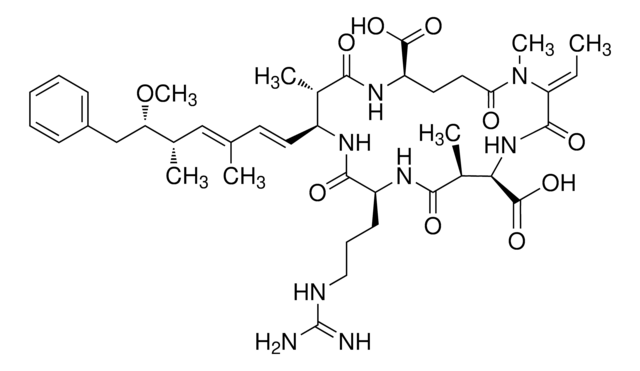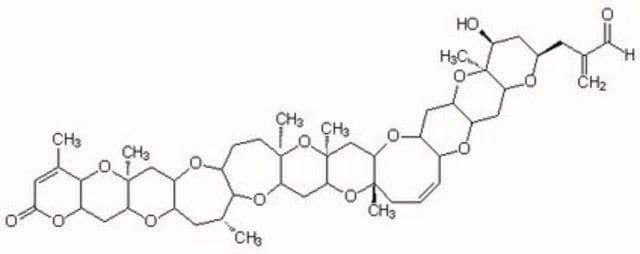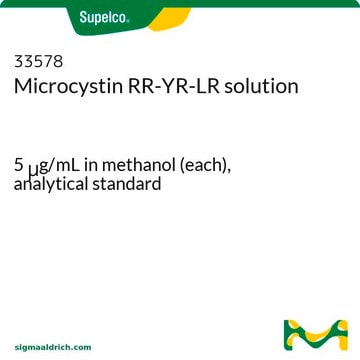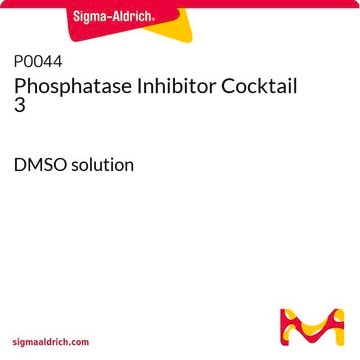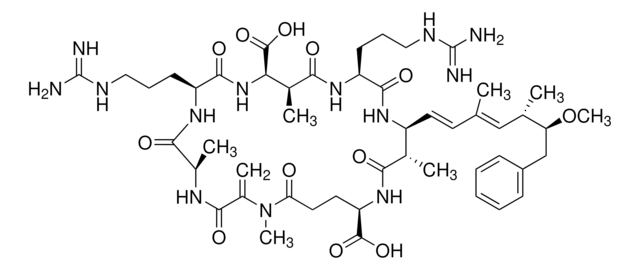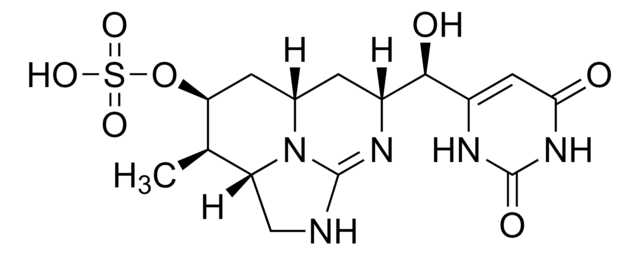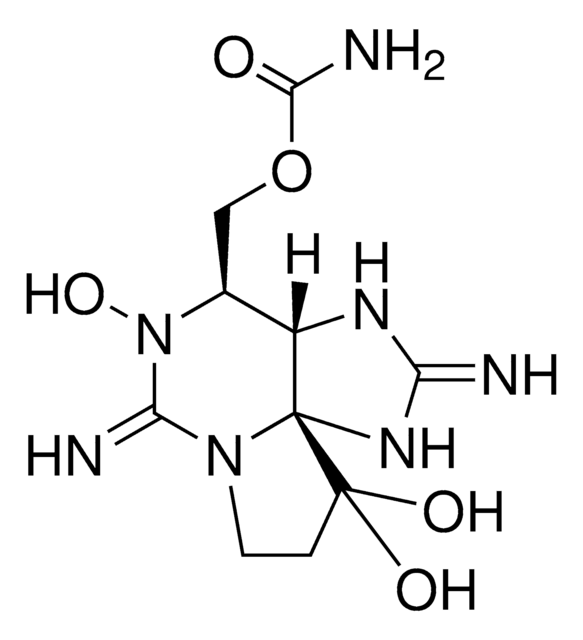32539
Nodularin solution
10 μg/mL in methanol, analytical standard
Synonym(s):
Cyclo[(2S,3S,4E,6E,8S,9S)-3-amino-9-methoxy-2,6,8-trimethyl-10-phenyl-4,6-decadienoyl-D-γ-glutamyl-(2Z)-2-(methylamino)-2-butenoyl-(3S)-3-methyl-Dβ-aspartyl-L-arginyl), Nodularin-R solution
About This Item
Recommended Products
grade
analytical standard
Quality Level
shelf life
limited shelf life, expiry date on the label
concentration
10 μg/mL in methanol
technique(s)
HPLC: suitable
gas chromatography (GC): suitable
application(s)
cleaning products
cosmetics
food and beverages
personal care
format
single component solution
storage temp.
−20°C
SMILES string
CO[C@@H](Cc1ccccc1)[C@@H](C)\C=C(C)\C=C\[C@@H]2NC(=O)[C@H](CCCNC(N)=N)NC(=O)[C@@H](C)[C@@H](NC(=O)\C(=C\C)N(C)C(=O)CC[C@@H](NC(=O)[C@H]2C)C(O)=O)C(O)=O
InChI
1S/C41H60N8O10/c1-8-31-38(54)48-34(40(57)58)26(5)36(52)46-29(15-12-20-44-41(42)43)37(53)45-28(25(4)35(51)47-30(39(55)56)18-19-33(50)49(31)6)17-16-23(2)21-24(3)32(59-7)22-27-13-10-9-11-14-27/h8-11,13-14,16-17,21,24-26,28-30,32,34H,12,15,18-20,22H2,1-7H3,(H,45,53)(H,46,52)(H,47,51)(H,48,54)(H,55,56)(H,57,58)(H4,42,43,44)/b17-16+,23-21+,31-8-/t24-,25-,26-,28-,29-,30+,32-,34+/m0/s1
InChI key
IXBQSRWSVIBXNC-HSKGSTCASA-N
Looking for similar products? Visit Product Comparison Guide
Related Categories
General description
Application
- Surface and drinking waters by on-line solid phase extraction (SPE) and ultra high pressure liquid chromatography-tandem mass spectrometry (UHPLC-MS/MS).
- Sediments and pore waters by accelerated solvent extraction (ASE) and HPLC-MS/MS.
Signal Word
Danger
Hazard Statements
Precautionary Statements
Hazard Classifications
Acute Tox. 3 Dermal - Acute Tox. 3 Inhalation - Acute Tox. 3 Oral - Flam. Liq. 2 - STOT SE 1
Target Organs
Eyes
Storage Class Code
3 - Flammable liquids
WGK
WGK 1
Flash Point(F)
51.8 °F
Flash Point(C)
11 °C
Personal Protective Equipment
Choose from one of the most recent versions:
Already Own This Product?
Find documentation for the products that you have recently purchased in the Document Library.
Customers Also Viewed
Our team of scientists has experience in all areas of research including Life Science, Material Science, Chemical Synthesis, Chromatography, Analytical and many others.
Contact Technical Service